-
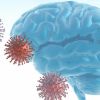 +30 +4
+30 +4Mounting research shows that COVID-19 leaves its mark on the brain, including with significant drops in IQ scores
Two new high-profile studies add to the increasingly worrisome picture of how even mild cases of COVID-19 can have detrimental effects on brain health.
-
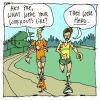 +15 +2
+15 +2We Love Writing. And Procrastinating. Running Helps Us Do Both.
The two pursuits have more in common than meets the eye
-
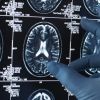 +33 +2
+33 +2Long COVID Seems to Be a Brain Injury, Scientists Discover
Some form of brain injury could be behind the symptoms reported by those with long COVID, according to a new study, and adapting tests and treatments to match could aid progress in tackling the condition.
-
 +33 +4
+33 +4Writing things down may help you remember information more than typing
Writing words down increases connectivity linked to memory and learning between different areas of the brain, with the same not being true when things are typed out on a computer
-
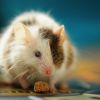 +24 +6
+24 +6Scientists Extend Life Span in Mice by Restoring This Brain-Body Connection
Reactivating the connection in elderly mice revived their motivation, transforming them from couch potatoes into impressive joggers.
-
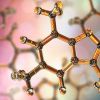 +30 +5
+30 +5Caffeine use prevents stress-induced impairment of spatial memory
A study has found that adding caffeine to the drinking water of rats exposed to social isolation stress can protect them from developing memory impairments.
-
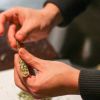 +21 +2
+21 +2Scientists Discover The Exact Reason Marijuana Causes The ‘Munchies’ In New Federally Funded Study
For the first time, scientists have identified exactly what happens in the brain after using marijuana that causes the “munchies,” a new federally funded study shows. Researchers at Washington State University (WSU) published the findings in the journal Scientific Reports, revealing how cannabis activates a specific cluster of neurons in the hypothalamus region of the […]
-
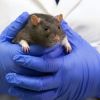 +22 +3
+22 +3Rats have an imagination, too, researchers show with brain implants
Rats think of objects and places that are not directly in front of them, a key requirement for remembering the past and imagining the future.
-
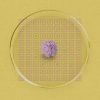 +30 +5
+30 +5Human brain cells hooked up to a chip can do speech recognition
Clusters of brain cells grown in the lab have shown potential as a new type of hybrid bio-computer.
-
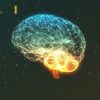 +33 +5
+33 +5Could you move from your biological body to a computer? An expert explains ‘mind uploading’
The feasibility of mind uploading rests on three core assumptions. How plausible is each one, really?
-
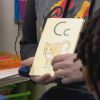 +21 +4
+21 +4What is Science of Reading and why you are hearing so much about it?
The way our schools are teaching kids how to read is changing.Schools In Indiana will be required to align curriculum to Science of ReadingScience of Reading is
-
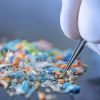 +37 +3
+37 +3Ubiquitous nanoplastics found to cause Parkinson’s disease
New research is finding that nanoplastics aggregate in the brain causing certain forms of dementia.
-
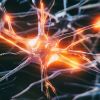 +30 +4
+30 +4World's Leading Theory on Alzheimer's in Crisis After Major Drug Trials Fail
These drugs significantly reduce the amount of amyloid beta in the brain as intended, but this did not translate into improvements in cognitive function.
-
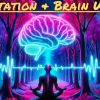 +45 +5
+45 +5The Brain Waves of Meditation: What Do They Mean?
-
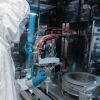 +45 +9
+45 +9Neuralink competitor Precision Neuroscience buys factory to build its brain implants
Precision Neuroscience acquired a manufacturing facility that can produce the key component of its brain implant.
-
 +49 +8
+49 +8How thinking in a foreign language improves decision-making
Research shows people who speak another language are more utilitarian and flexible, less risk-averse and egotistical, and better able to cope with traumatic memories
-
 +28 +6
+28 +6Jamais vu: the science behind eerie opposite of déjà vu
Ever looked at a familiar face or word and found it suddenly unusual or unknown? You may have had a case of jamais vu.
-
 +42 +3
+42 +3Company Is Working on ‘Synthetic Alcohol’ That Has None of the Negative Side-Effects of the Real Thing
A synthetic alcohol called 'Alcarelle' reportedly provides the relaxing effects of alcohol without hangovers and other negative side effects.
-
 +53 +8
+53 +8Pink Floyd Song Reconstructed From People's Brain Activity
Neuroscientists were able to recreate “Another Brick in the Wall, Part 1″ using AI to decipher the brain’s electrical activity
-
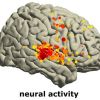 +42 +5
+42 +5Brain recordings capture musicality of speech — with help from Pink Floyd
Neuroscientists decode song from brain recordings, revealing areas dealing with rhythm and vocals
Submit a link
Start a discussion




















